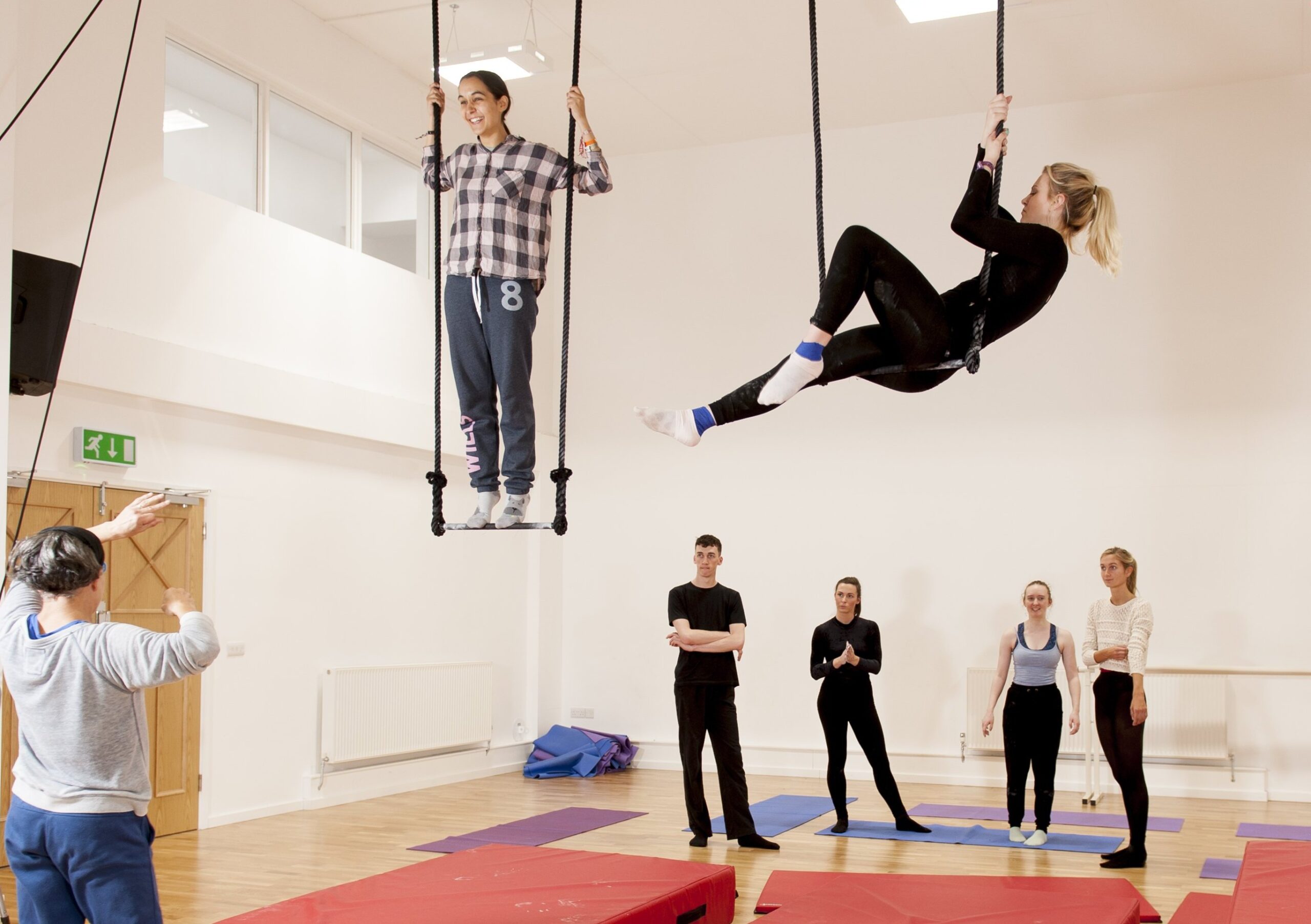
Photo: Sally Edwards
Dancing in Derby
Working in a professional dance house helps dance students in Derby prepare for life after university, writes Clare Limb.
Déda’s initial approach to the University of Derby to collaborate on a single honours dance degree was prompted by two factors. First, we identified the need for a progression route for our Youth Academy members and local students, including those studying BTEC Performing Arts at Derby College. And second, in common with the wider arts sector, we were facing a withdrawal of council funding and needed to identify alternative income streams to reduce our reliance on the public purse.
Developing professional practice through volunteering, work placements and internships is a key element of the degree
Discussions with the university quickly led us to work together to create something different for BA Dance students, with a focus on developing versatile skills to broaden the students’ career opportunities across the sector.
A perfect fit
The partnership is a perfect fit and beneficial for both organisations as it builds on all our strengths and expertise. Working with us builds on the university’s already successful ‘Learning Theatre’ model, with a wide range of degree programmes based at Derby Theatre and a clear focus on employability skills.
Similarly, the main strength of our BA Dance course is that our students are studying in a professional dance house allowing for specialised experience.
We pride ourselves on being adaptable to the changing face of the dance sector, and the development of the degree has been integral to our ambition of being a national leader in the fields of dance, contemporary circus and outdoor work.
On paper most dance degrees look the same, but ours is different in that it is sector-focused, developed jointly by university academics and dance professionals including Alice Vale (who is now Programme Leader) and fellow lecturer Elizabeth Foster. As freelance dance artists, both have first-hand experience of the need to be versatile in order to create successful portfolio careers.
Our first students back in September 2014 were mainly drawn from the local area. As the course has grown, our newest intake of 21 students has come from a wider geographical area across the Midlands and beyond. This shows that the course is on the radar of young dancers across the UK as they consider their higher education options.
Theory and practice
Contemporary circus is a further unique aspect of the course. The students develop skills that are increasingly in demand, as boundaries become blurred between dance, contemporary circus and outdoor work.
The degree programme combines studio-based theory and practice, and that all-important element: work-based learning. This ensures that students are equipped with a range of skills required by the industry, as well as concrete learning outcomes that are recognised and valued by the sector.
Developing professional practice through volunteering, work placements and internships is a key element of the degree. Students become part of the team at Déda – with teaching and choreography roles on our youth academy as well as in several community, health and education projects.
Although dance is at the heart of the degree, we provide students with a broad understanding of the various roles open to them across the arts. They therefore work with many of our partners in the city and beyond to broaden their experience in areas including physical theatre, digital and visual arts.
Students are largely based here at Déda with daily sessions in our professional dance studios, which were expanded to coincide with the launch of the degree and incorporate a range of equipment for aerial dance. In addition to the facilities here, students have access to all the learning and social resources at the nearby university campuses.
Visiting dancers and choreographers
With our studio theatre attracting touring performances, students have the opportunity to participate in masterclasses and workshops with a range of internationally renowned performers and choreographers. Strong relationships with Trinity Laban Conservatoire of Music and Dance and the National Centre for Circus Arts have helped us develop and refine our offer.
One of our key roles is to be an incubator of early ideas and the degree is embedded in our Associate Artists programme. We are already exploring developing the curriculum, incorporating aerial and acrobatics, and looking at introducing new undergraduate and postgraduate programmes in the future.
By staying responsive to the changing requirements of the dance sector, BA Dance students at Derby will be armed with the broader skills that are required to follow creative, challenging and fulfilling careers both in the UK and across the world.
Clare Limb is Head of Dance Development and Learning at Déda.
www.deda.uk.com
Join the Discussion
You must be logged in to post a comment.